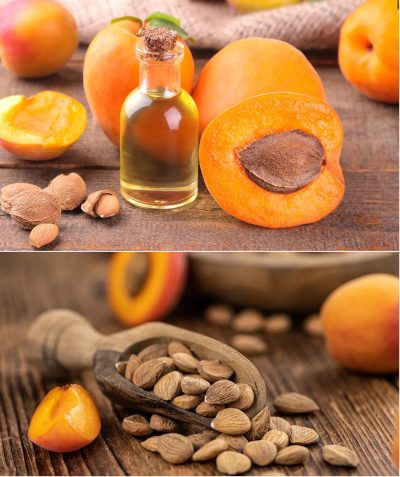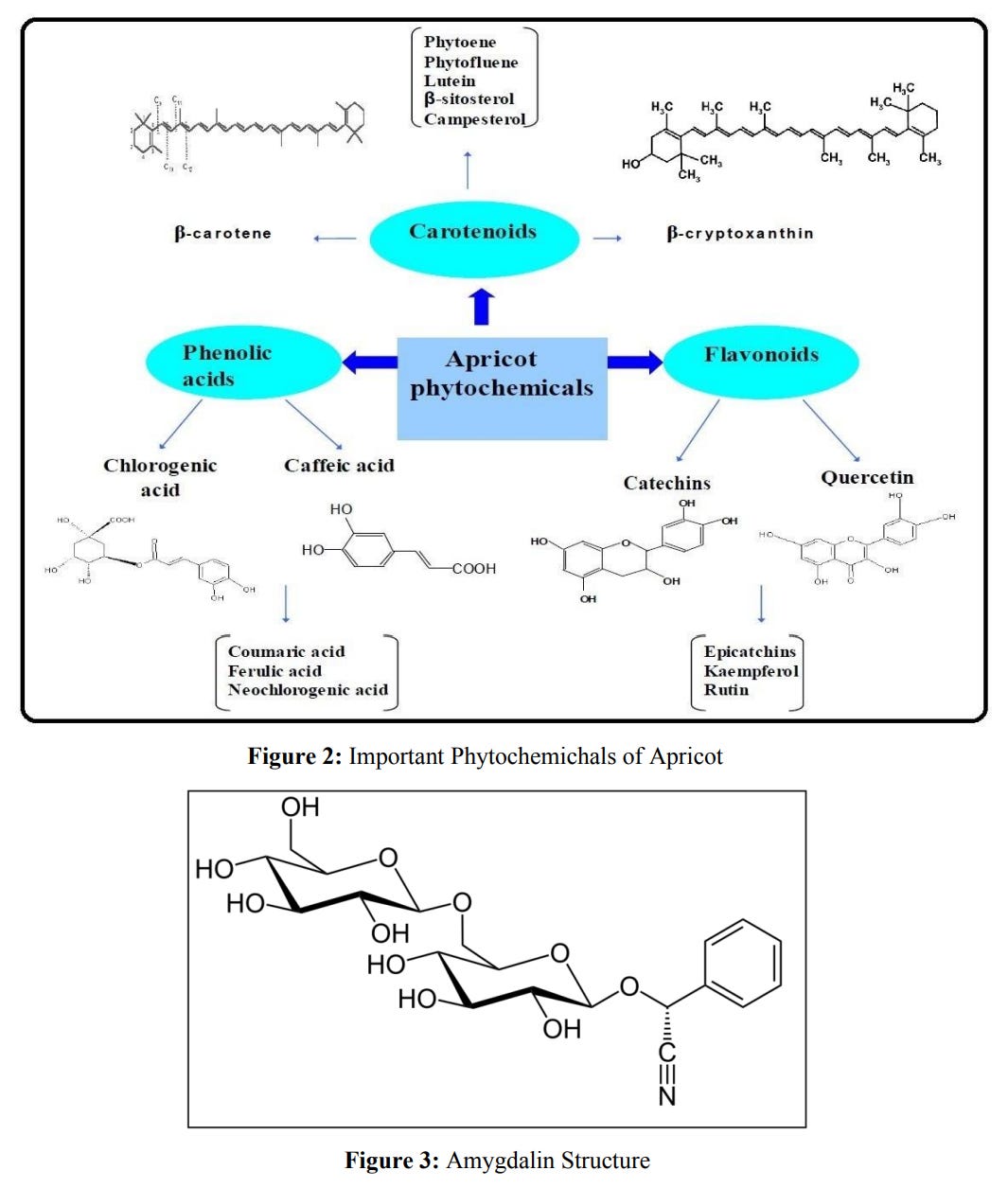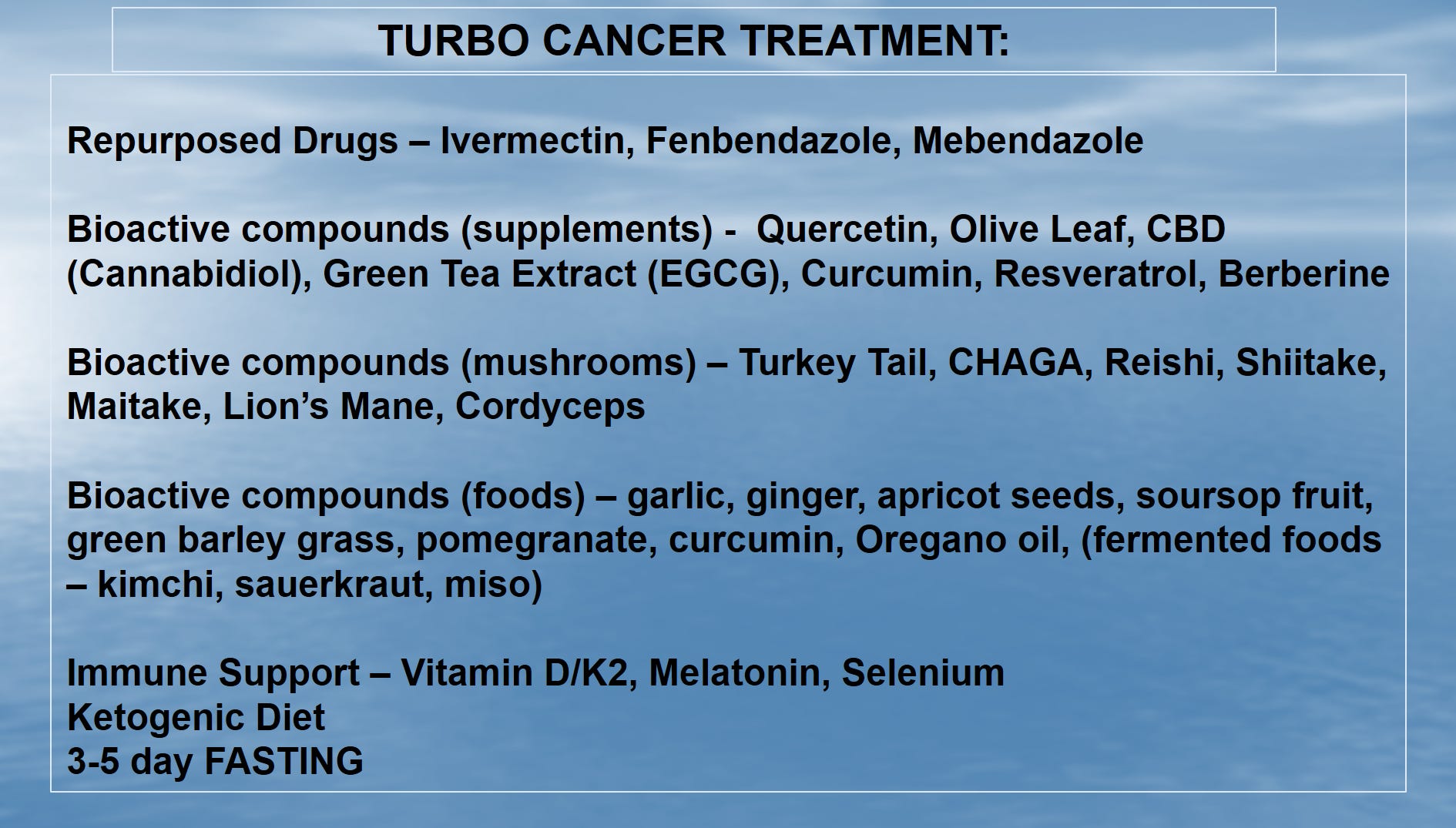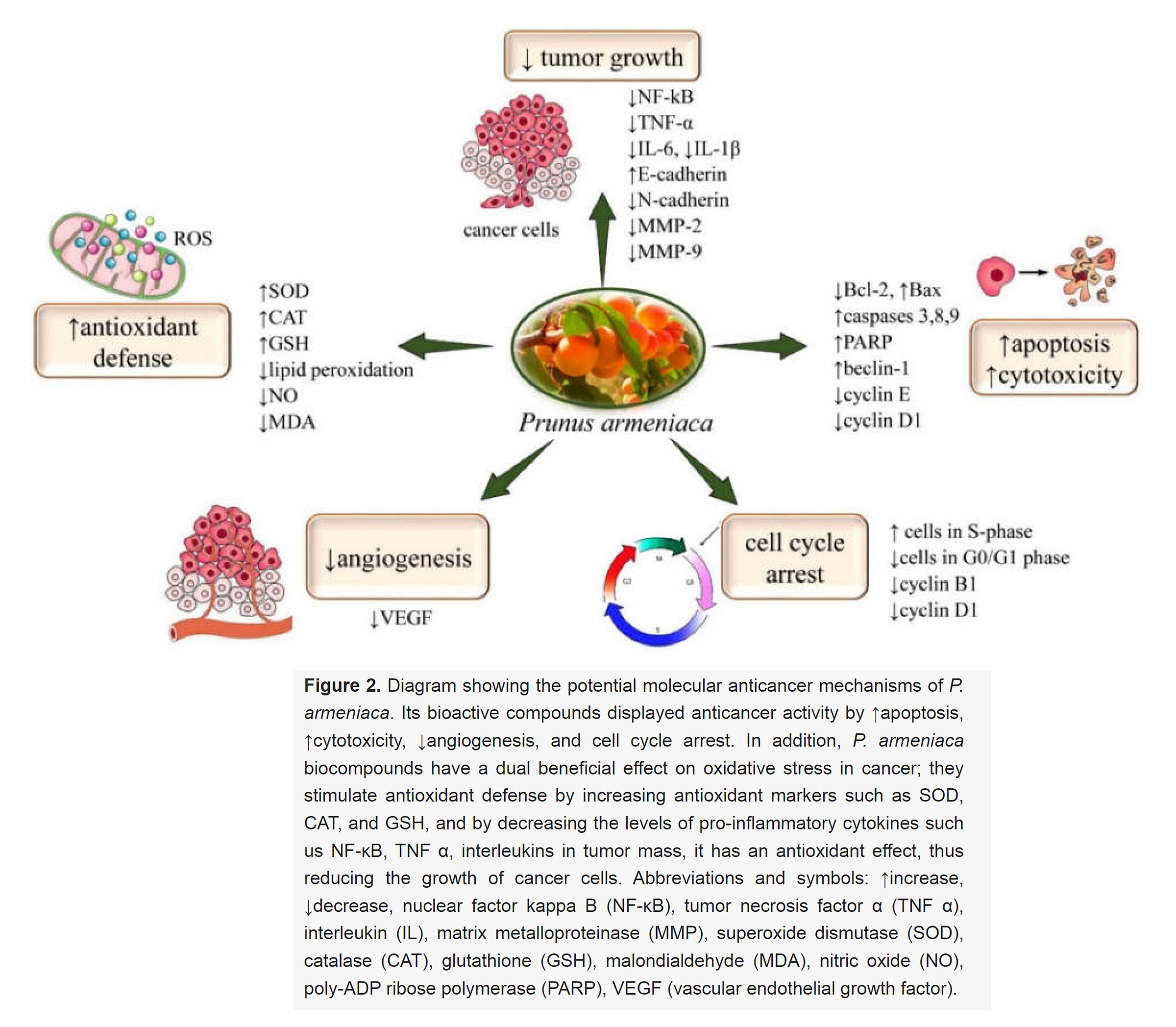Apricots, Apricot Seeds and Cancer: A Quick Review of the Recent Science and Controversies Behind Amygdalin, Laetrile, Vitamin B17

All Global Research articles can be read in 51 languages by activating the Translate Website button below the author’s name (only available in desktop version).
To receive Global Research’s Daily Newsletter (selected articles), click here.
Click the share button above to email/forward this article to your friends and colleagues. Follow us on Instagram and Twitter and subscribe to our Telegram Channel. Feel free to repost and share widely Global Research articles.
Global Research Referral Drive: Our Readers Are Our Lifeline
***
Papers Reviewed
Animal Studies:
-
2020, Ramadan et al – The pharmacological effect of apricot seeds extracts and amygdalin in experimentally induced liver damage and hepatocellular carcinoma
- Rats were fed with apricot seed extracts, amygdalin and silymarin and were exposed to a liver toxin and liver carcinogen.
- Conclusion: “Apricot seeds possess hepatoprotective and anticancer activities that justify its traditional use, and its potential for the treatment of liver diseases including hepatocellular carcinoma.”
- 2021, Hosny et al – Prunus Armeniaca L. Seed Extract and Its Amygdalin Containing Fraction Induced Mitochondrial-Mediated Apoptosis and Autophagy in Liver Carcinogenesis
- in vitro investigation of the anticancer activity of Apricot Extract (AE) and Amygdalin Containing Fraction (ACF), additionally studying their therapeutic effects on DMBA induced liver carcinogenesis mice model
- conclusion: “AE and ACF were found to stimulate the apoptotic process by up-regulating caspase-3 expression and down-regulating Bcl-2 expression. They also reduced VEGF and PCNA levels and increased the antioxidant defense system. Moreover, AE and ACF treatments also inhibited HepG2 and EAC cell proliferation and up-regulated Beclin-1 expression.”
- 2021, Mohamed et al – Utilization of Grape and Apricot Fruits By-products as Cheap Source for Biologically Active Compounds for Health Promotion
- apricot kernel nutraceutical showed anti-cancer activity against liver carcinoma cells, breast cancer cells and lung cancer cells (grape seed nutraceutical was more promising than apricot kernel)
- grape seed nutraceutical showed highest content of phenolic compounds and total flavonoids and showed highest antioxidant activity
- apricot kernel nutraceutical was completely safe up to 6g/kg in mice.
- 2022, Al-Fatlawi et al – Effect of adding local apricot seed (prunus armeniaca) powder in feed of mice suffering from gastrointestinal cancer
- mice were fed varying concentrations of apricot seeds
- Conclusion: “introduction of apricot seeds in the diet of experimental animals led to an increase in weight…Apricot seeds contain minerals and active substances that led to the animal’s recovery from digestive cancer and an increase in its weight.”
- 2020, Aamazadeh et al – Bitter apricot ethanolic extract induces apoptosis through increasing expression of Bax/Bcl-2 ratio and caspase-3 in PANC-1 pancreatic cancer cells
- bitter apricot ethanolic extract BAEE and amygdalin inhibited cancer cell growth in a dose- and time-dependent manner
- conclusion: “bitter apricot ethanolic extract BAEE functions as a potent pro-apoptotic factor for human pancreatic cancer cells”
- 2022, Etminan et al – Ultrasonic Nano emulsification of Apricot Kernel Oil and Its Therapeutics Effects on Suppression of Human Lung Cancer Cells (A549)
- apricot kernel oil was able to inhibit lung cancer cells with different strategies
- induced apoptosis, antioxidant, and inhibited angiogenesis
Reviews
- Apricot (Prunus armeniaca L.) belongs to the Rosaceae family. In Angiosperms, Rosaceae is one of the largest families with around 3,400 species which includes almonds, apples, peaches, plums, strawberries and cherries, distributed throughout the northern temperate regions of the world
- It is a temperate fruit and grows in climates with well differentiated seasons.
- The apricot originates from China and dates back to 2000 BC
- Gradually they made their way through the Persian Empire to the Mediterranean, where they were best adapted
- Currently, the main apricot planting zones include a strip stretching from Turkey to Iran, the Himalayas, the Hindu Kush, China, and Japan. However, the largest production of apricots in the world is provided from Mediterranean countries
- Turkey has 20% of world’s apricot production
- the seeds contain the cyanogenic glycoside amygdalin
- Amygdalin is used in traditional chinese medicine to relieve “blood stagnation” and to treat abscesses
- Amygdalin is also used as an anti-cancer agent since the 1800s
- Apricot fruit contains varying levels of phytochemicals such as polyphenols (phenolic acids and flavonoids) and carotenoids
- catechins are the most common phenolic compound in Turkish apricots
- flavonoids in apricots are mostly found as quercetin, kaempferol, and rutin glycosides and rutinosides

- Apricot kernels appear to be an important source of natural antioxidants such as tocopherols and phenolic compounds
- Apricots have shown anti-carcinogenic potential in a number of studies.
- In 2010, Enomoto and colleagues found that consumption of 3 Japanese apricots per day had an inhibitory effect on gastric mucosal inflammation and the progression of chronic gastritis due to Helicobacter pylori infection (Enomoto et al., 2010).
- major constituent of apricot seeds (up to 4.9%) is the cyanogenic glycoside amygdalin, followed by other cyanogenic compounds such as prunasin and mandelonitrile.
- Other constituents include various fatty acids, mostly oleic, palmitic and linoleic acid, phytosterols, essential amino acids, the enzyme emulsin, as well as vitamins and minerals
- Amygdalin, sometimes referred to as vitamin B17, although it is not classified as a vitamin, has a molecular formula of C20H27NO11.
- apricot seed bioactive compounds displayed anticancer activity by ↑apoptosis, ↑cytotoxicity, ↓angiogenesis, ↓tumor growth, and cell cycle arrest.
- rat glioma cells – Canned apricots showed the strongest antiproliferative effect inhibition, followed by dried, and then frozen apricots.
- It is considered that the process of canning releases bioactive compounds that are responsible for the antiproliferative effects. The drying and freezing process also affects phytochemicals, though to a lesser extent, and can degrade phenolic compounds and carotenoids
- oral cancers – ethanolic apricot seed extract showed activity on oral cancer cells
- liver cancer – aqueous-methanolic apricot seed extract and its amygdalin-containing fraction displayed anticancer activity by inducing apoptosis and autophagy, reducing cell proliferation, increasing antioxidant defenses, and reducing the release of the pro-inflammatory marker TNF-α and the vascular endothelial growth factor (VEGF)—a marker of angiogenesis.
- 20% ethanolic extract prepared from kernels of bitter apricots of Bulgarian origin, containing the cyanogenic glycosides amygdalin, deidaclin, linamarin, and prulaurasin, demonstrated antigenotoxic, antirecombinogenic, antimutagenic, and anticarcinogenic effects in yeast cell-based assays
- ethanolic extract from apricot flesh showed strong cytotoxicity on hepatocellular carcinoma cells
- (2021 Hosny) – apricot seed extract tested on mice – protected their liver. Amygdalin was able to induce oxidative-depended apoptotic cell death
- (2014 Karabulut) – apricot fruit protected liver of rats from radiation injury
- (2020 Ramadan) – apricot seed ethanolic extracts 70% and 99.9% protected liver and reduced liver cancer incidence
- colon cancer – apricot kernel 80% ethanol extracts
- (2014 Aysun) – rats fed a diet of 20% sun dried apricots and exposed to carcinogens, had reduced telomerase activity (increase cancer cell death)
- (2019 Cassiem) – colon cancer cells had decreased cell proliferation, increased apoptosis and cell cycle arrest with apricot kernels 80% ethanol extract.
- pancreatic cancer
- (2021 Aamazadeh) – pancreatic cancer cell growth was inhibited by ethanolic extract of bitter and sweet apricot kernels as well as amygdalin
- bitter apricot kernal extract was more effective than sweet apricot kernel
- (2021 Aamazadeh) – pancreatic cancer cell growth was inhibited by ethanolic extract of bitter and sweet apricot kernels as well as amygdalin
- breast cancer
- (2019 Mahmoudi) – apricot extract significantly inhibited proliferation of breast cancer cells
- (2019 Sireesha) – aqueous, methanolic, and ethanolic extracts from apricot kernels inhibited growth of breast cancer cells
- (2007 Yoo) – ethanolic extract of apricot flesh showed cytotoxicity against breast cancer cells
- lung cancer
- (2007 Yoo) – ethanolic extract of apricot flesh showed strong cytotoxicity against lung cancer cells
- Fei-Liu-Ping is a Traditional Chinese Medicine used to treat lung cancer and contains apricot and other medicinal plants – was shown to inhibit growth of lung cancer cells
- In a study done in a Malaysian hospital, 30% of cancer patients receiving chemo used apricot seeds – they had improved prognosis, reduced risk of thrombosis and other side effects of chemo like skin rashes.
- urogenital cancers
- (2016 Lee) – apricot seed extract had effect on bladder cancer cells
- (2016 Lee) – apricot seed extract induced apoptosis in prostate cancer cells
- (2007 Yoo) – ethanolic apricot flesh extract showed potent cytotoxicity on human cervical adenoca cells
- skin cancer
- (2016 Li) – apricot seed essential oil inhibited growth of skin cancer cells via cell cycle arrest, apoptosis
- (1997 Kapadia) – apricot fruit extract 95% ethanolic inhibited skin carcinogenesis in mice
- leukemia
- (2019 Manshadi) – Aqueous, ethyl acetate, and hydromethanolic extracts from apricot seeds inhibited the growth of leukemia cells
- The ethyl acetate extract, containing 0.67% of amygdalin, showed the strongest activity. This extract caused almost 50% apoptosis after 48 hours.
- (2007 Lee) – mice fed with apricot kernels showed significant reduction of cancer growth (lymphosarcoma)
- A substance known as Vitamin B17, also referred to as amygdalin or laetrile, has garnered attention as a potential anti-cancer agent
- the use of Vitamin B17 in cancer treatment remains controversial, with conflicting viewpoints on its effectiveness and safety
- Vitamin B17 gained prominence due to its association with apricot kernels, which contain a compound called amygdalin. Advocates of Vitamin B17 propose that this compound, when ingested, releases cyanide, a toxic substance, which purportedly selectively targets and destroys cancer cells while sparing normal cells. This mechanism, often touted as “targeted chemotherapy,”
- Amygdalin is a disaccharide found mostly in fruit kernels of peach, bitter almond and apricot.
- Amygdalin’s anticancer activity is believed to be related to the cytotoxic effects of enzymatically released HCN (hydrogen cyanide) and unhydrolyzed cyanoglycosides
- Derived from amygdalin, laetrile has been used as a complementary and alternative natural therapy in the treatment of cancer for over 30 years
- Amygdalin belongs to the cyanoglycosides (CG) group of organic compounds
- primary function of cyanogenic glycosides is to protect plants from insects and large herbivores. Amygdalin levels typically increase during fruit enlargement and remain constant or slightly decrease during ripening
- The bitterness of almond grains is determined by the content of cyanogenic amygdalin diglucosides
- In the 1920s, Dr. Ernst T. Krebs, Sr., formulated a theory that amygdalin could kill cancer cells.
- In the 1950s, a reportedly nontoxic, partly synthetic form of amygdalin was made and patented in the United States as “Laetrile” (co-patented by his son Ernst Krebs Jr)
“Health Canada has not approved any medicinal or natural health uses of apricot kernels, laetrile or “vitamin B17” and does not permit cancer treatment claims for natural health products.” Dec.19, 2018
“In 1980, the U.S. Supreme Court acted to uphold a federal ban on interstate shipment of laetrile. As a result, the use of laetrile has greatly diminished, but the compound continues to be manufactured and administered as an anticancer therapy, primarily in Mexico, and in some clinics in the United States.”
“Although the names laetrile, Laetrile, vitamin B-17, and amygdalin are often used interchangeably, they are not the same product. The chemical composition of U.S.-patented Laetrile (mandelonitrile-beta-glucuronide), a semisynthetic derivative of amygdalin, is different from the laetrile/amygdalin produced in Mexico (mandelonitrile beta-D-gentiobioside), which is made from crushed apricot pits”
“Mandelonitrile, which contains a cyanide group, is a structural component of both products. It has been proposed that released (hydrogen) cyanide is the active cancer-killing ingredient in laetrile, but two other breakdown products of amygdalin—prunasin (which is similar in structure to Laetrile) and benzaldehyde—may also be cancer cell inhibitors.[17–20] The studies discussed in this summary used either Mexican laetrile/amygdalin or the patented form. In most instances, the generic term laetrile will be used in this summary; however, a distinction will be made between the products when necessary.”
“Laetrile can be administered orally as a pill, or it can be given by injection(intravenous or intramuscular). It is commonly given intravenously for a period of time followed by oral maintenance therapy. The incidence of cyanide poisoning is much higher when laetrile is taken orally [21–23] because intestinal bacteria and some commonly eaten plants contain enzymes (beta-glucosidases) that activate the release of cyanide after laetrile has been ingested.[17,22] Relatively little breakdown occurs to yield the (hydrogen) cyanide when laetrile is injected.[7,22] Administration schedules and the length of treatment in animal models and humans vary widely.”
My Take…
Apricot seeds, amygdalin, laetrile and Vitamin B17 are heavily mired in controversy to this day.
Controversy in recent years:
- 2016 – European Food Safety Authority – Apricot kernels pose risk of cyanide poisoning (source)
- Eating more than three small raw apricot kernels, or less than half of one large kernel, in a serving can exceed safe levels.
- A naturally-occurring compound called amygdalin is present in apricot kernels and converts to cyanide after eating. Cyanide poisoning can cause nausea, fever, headaches, insomnia, thirst, lethargy, nervousness, joint and muscle various aches and pains, and falling blood pressure. In extreme cases it is fatal.
- “Based on these limits and the amounts of amygdalin typically present in raw apricot kernels, EFSA’s experts estimate that adults could consume three small apricot kernels (370mg), without exceeding the ARfD.”
- 2017 – Health Canada – “Snacking on bitter apricot kernels? You’re at risk of cyanide poisoning, Health Canada warns” (source)
- “Health Canada advises those who choose to consume bitter apricot kernels to limit their consumption to no more than three kernels per day for adults, ground and mixed with other foods,” the advisory said.
- “Children should not eat the bitter kernels at all.”
- 2018 – Health Canada proposed to add cyanide in apricot kernels to the list of contaminants and other adulterating substances in foods (source)
- 2021 – Health Canada recalls (seven) apricot kernel products due to cyanide poisoning risk -“Apricot kernels naturally contain amygdalin, which can release cyanide after being eaten.” (source)
- Symptoms of cyanide poisoning include weakness and confusion, anxiety, restlessness, headache, nausea, difficulty breathing and shortness of breath, loss of consciousness, seizures and cardiac arrest.
- Health Canada advises you call a doctor if you become sick after consuming one of the recalled products.
- “As of yet, there have been no reported illnesses linked to the products.”
- 2019 – New York arm-wrestling legend and his mom arrested for selling ‘Apricots From God’ as bogus cancer cure (source)
- “Agents with the U.S. Food and Drug Administration arrested the mother and son on Wednesday at their Queens home on charges of contempt of court, alleging that Vale, 51, has continued to violate a 2000 court order that banned him from selling the seeds as a purported cure for cancer.”
- “This marks the second time Vale has been arrested for contempt after continuing his Apricots From God enterprise despite warnings to shut it down;he was convicted in 2003 and sentenced to five years in prison for the crime. Jason and his 77-year-old mother, Barbara Vale, are also charged with introducing items into commerce by making false statements.”
-
2023 Dec – TGA seizes amygdalin during search warrant in Brisbane, Australia (source)
My Approach:
There are dozens of studies confirming anti-cancer effects for apricot fruit, apricot seeds (bitter kernels), and amygdalin (a compound in apricot kernels).
Apricot fruit and kernels contain “bioactive compounds” like flavonoids (Quercetin, catechins), phenolic acids, carotenoids – with anti-cancer properties which include anti-oxidant, pro-apoptotic, anti-proliferative, cell cycle arrest inducing and angiogenesis inhibiting.
Furthermore, apricot fruit is rich in Vitamins and minerals (source).
So what’s the problem?
Let’s set aside the long complicated history of Laetrile, which is related to amygdalin.
The regulatory authorities seem to have a problem with apricot seeds.
Health Canada first said you could “safely consume” 3 small apricot seed kernels a day. Then in 2021, they recalled seven apricot seed products due to “cyanide poisoning risk” but couldn’t produce a single person who suffered such poisoning (of course, thousands of mRNA Vaccine deaths are perfectly OK).
And the raids in New York and Brisbane on people selling Apricot seeds or amygdalin are equally bizarre and abusive.
Bottom line is this: apricot fruit and apricot seeds have proven anti-cancer properties in vitro and in vivo experiments. To what extent, isn’t entirely clear, but the effects are substantial enough.
Apricots and Apricot seeds are reasonable additions to an “Alternative Treatment” Protocol for Cancer, without any need to get involved in the “Laetrile” controversy.
Evidence suggests the apricot seeds are safe to consume and up to now, Health Canada hasn’t produced a single case of a person who got sick from apricot seeds (or a single mouse for that matter).
The apricot seed product recalls (by Health Canada) and raids in New York and Brisbane seem abusive and maybe even illegal, and it would appear that Health Canada is crossing the line to protect cancer drug sales for big pharma.

*
Note to readers: Please click the share button above. Follow us on Instagram and Twitter and subscribe to our Telegram Channel. Feel free to repost and share widely Global Research articles.
Dr. William Makis is a Canadian physician with expertise in Radiology, Oncology and Immunology. Governor General’s Medal, University of Toronto Scholar. Author of 100+ peer-reviewed medical publications.
Featured image is from COVID Intel


